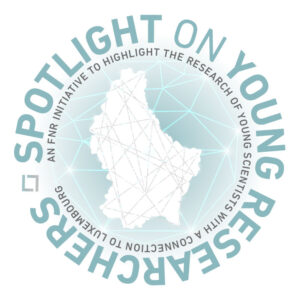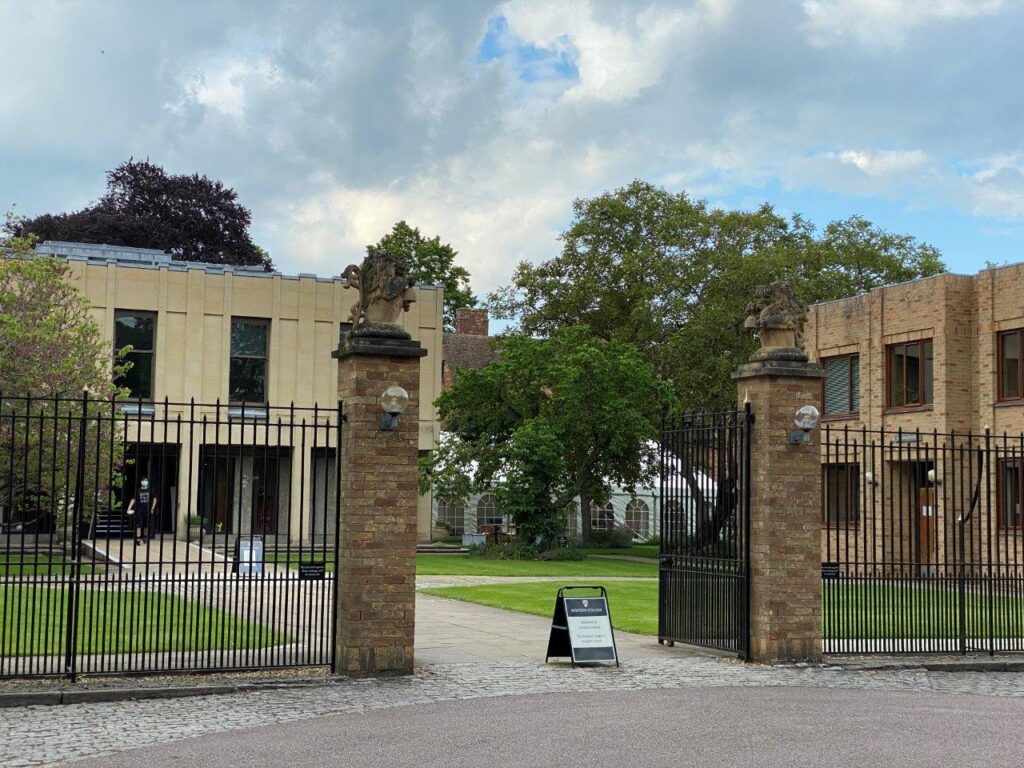BACK TO RESEARCH WITH IMPACT: FNR HIGHLIGHTS
As war rages in Ukraine, the topic PhD candidate Claude Ewert has been researching for the past three years is perhaps more relevant now than ever: the relationship between the European Community and the Soviet Union. The historian is gathering valuable information on the EC’s early foreign policy and the obstacles that had to be overcome to try to make the Community speak with one voice.
“When I started my BA in history, the Ukraine conflict had broken out and was discussed in class. I wondered, what the relations between the European Community and the Soviet Union must have been like. But to my surprise, there was next to no literature on that topic. The unfortunate events of the last months have made the topic more prevalent than ever,” explains Luxembourger Claude Ewert, a historian who is in the 3rd year of his AFR PhD at the University of Cambridge.
Only a few journal papers have been published on the topic of EC-USSR relations – they show that the situation in Western Europe did not conform to the Cold War master narrative of East versus West.
“Historians of the field had shown that there had been communication channels for trade between the EC and the USSR, although the latter had not officially recognised the former. This would not happen until the Gorbachev era. When negotiations could not be handled officially, it was done via back channels; officials of the EC and the USSR would meet for lunch in restaurants in Brussels, where possible new imports and exports were discussed,” Claude explains.
Claude’s multilingual background has been a great help in his research, as the 100,000 pages he is studying – distributed over 300 documents – are only possible to understand with proficiency in English, German and French.
The close reading of the archive material has revealed many aspects and details that depict a concrete picture of EC-USSR relations – putting the envisaged transnational image of the EC to a test, Claude elaborates:
“We can see how the sovereignty of EC member states affected decision-making regarding the Soviet Union. The argument that France was the sole driving force in EC-USSR negotiations during the 1960s has already been refuted.
“The subsidised butter sales to the USSR (intended to reduce the ‘butter mountains’ in Western Europe) proved to be a litmus test for cohesion inside the EC. The Soviet invasion of Afghanistan and the imposition of martial law in Poland put the EC suddenly onto the stage of world politics, albeit with little previous experience, and thus very hesitant initial reactions.”
The finished dissertation will contain valuable information on the EC’s early foreign policy and the obstacles that had to be overcome to try to make the Community speak with one voice. Claude’s research also shows tedious this progress was because even when the EC consisted of only six members, views on how to interact with the USSR were very different.
Claude Ewert is a 3rd year AFR PhD candidate at Cambridge University, where his research is supervised by Mark B. Smith
MORE ABOUT CLAUDE EWERT
On his research given the current situation
What it is like for you, as a historian, to be researching a topic that is now a quickly ”developing story”?
“It is baffling but that might just be my reaction as a human being. As a historian, it cannot influence what I’m doing. Too many histories are written teleologically, with an ending in sight, and that is something I want to avoid at all costs. I get asked a lot of questions these days, but I cannot rely on what happened thirty or more years ago to explain it.”
Has the EU response to the invasion changed how you go about your research now, or is your PhD more focussed on a set time period?
“No, that has not changed my research at all. When I dive into my archives, I’m in the 1980s (currently) and I just tend to forget what’s going on around me. What I do, though outside of my PhD dissertation, is to compare the reactions from the West today and that from 40 years ago and see huge differences. The speed at which the EU imposed sanctions, as well as their range, has been unprecedented. Anyone relying on previous EC/EU sanctions imposed because of Soviet/Russian militarism would never have seen this coming. This is a stark reminder that we should not use the past to explain the present.”
Is what is currently happening something that will influence your research directly?
“No. Luckily I can work with online documents and the EU’s archives keep growing in a digital way. I’ve heard of Cambridge researchers being stuck in Ukraine, though, which must be very unsettling. The only direct effect it had on me was that I was going to apply for a conference in St. Petersburg, but I had obviously changed my mind after the Russian invasion of Ukraine.”
On describing himself, the scientist/researcher
“On my social media profiles I like to call myself ‘PhDude’. I don’t really think of myself as a scientist or researcher. I do a lot reading on a laptop, take notes and finally put the acquired knowledge into a chapter of roughly 30 pages. It’s nothing out of the ordinary, even if it’s done in Cambridge, which I picked for its academic excellence, not the Harry Potter vibes.”
On his research, in one sentence
“Reading bureaucratic English written by a Francophone and vice versa.”
On what he likes about research
“I love to be able to do something that I like. I wouldn’t say that I ‘love’ research because I want to keep a healthy relationship to my work (research mode is off on evenings and weekends). Still, being able to do something that you like is a huge privilege. What I love about my PhD is the teaching opportunities.”
On where he sees himself in 5 years
“Hopefully lecturing somewhere at a university. My future career will probably be more centred on teaching than on research. Me doing a PhD was always about being able to teach in higher education. The research is thus rather a means to an end. That I can provide a more or less complete overview of the EC’s dealings with the USSR is a pleasant side effect.”
On mentors with an impact
“My previous BA and MA supervisors Thierry Grosbois and Spero Paravantis, respectively. But also my course directors Andrea Binsfeld and Sonja Kmec from the University of Luxembourg. My supervisor at Cambridge, Mark B. Smith is fabulous, and the general support you get from world class academics is inspiring.”
On milestones so far
“I presented my work at several conferences, one of them being at Yale University where I was later awarded the best paper of the panel prize. I will chair my own panel at the same conference this year. The third chapter of the dissertation is about to be written. Being awarded the AFR stipend was also quite the milestone.”s
All photos by Claude Ewert
About Spotlight on Young Researchers
Spotlight on Young Researchers is an annual FNR campaign where we shine a Spotlight on early-career researchers across the world with a connection to Luxembourg. Nearly 100 features have been published since the first edition in 2016.
Browse them below!




















